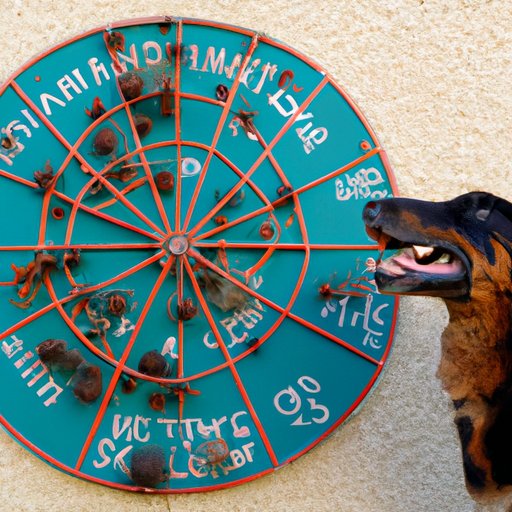Introduction
Animal science is a broad field of study that focuses on the biology and health of domestic animals. It encompasses a wide range of topics from genetics and nutrition to reproduction and animal behavior. Those who pursue an animal science major gain valuable knowledge and skills related to animal care and management that can be applied in many different industries.
What is an Animal Science Major?
An animal science major typically involves courses in both the biological and physical sciences which focus on the welfare and management of domestic animals. Students learn about animal anatomy, physiology, nutrition, genetics, reproduction, and behavior. They also gain practical experience through laboratory and field studies, as well as internships in various animal-related industries.
The study of animal science provides students with a comprehensive understanding of how animals interact with their environment, the impact of human activities on animal populations, and the role of animal production in global food systems.

Benefits of Pursuing an Animal Science Degree
Pursuing a degree in animal science can lead to a variety of career opportunities in the animal industry. Animal science majors gain knowledge and skills related to animal husbandry, nutrition, genetics, and reproduction. They also develop an understanding of animal behavior and the principles of animal welfare. These skills are highly sought after in the animal industry, allowing graduates to pursue a wide range of job opportunities.
In addition, animal science majors gain a comprehensive understanding of the principles of ecology and sustainability. This knowledge can be used to help protect and preserve natural ecosystems, as well as to promote sustainable practices within the animal industry.
Career Opportunities for Animal Science Majors
Animal science majors are prepared for a variety of career opportunities in the animal industry. These include positions in veterinary medicine, animal nutrition, animal behavior and welfare, animal reproduction, livestock management, and animal health care. Animal science majors may also pursue careers in research, education, and conservation.
According to the Bureau of Labor Statistics, the median annual wage for animal scientists was $60,270 in May 2019. Employment of animal scientists is projected to grow 5% from 2019 to 2029, faster than the average for all occupations.
What’s Involved in Studying Animal Science?
A typical animal science program includes courses in biology, chemistry, physics, mathematics, and animal science. Courses may focus on topics such as animal nutrition, reproduction, genetics, animal behavior, and welfare. Many programs also offer courses in business, communications, and other related fields.
In addition to coursework, most animal science programs require students to complete an internship or field experience. This allows students to gain hands-on experience and apply the knowledge they have gained in the classroom. Internships provide students with the opportunity to network and make connections in the animal industry.

Tips for Succeeding in an Animal Science Major
Pursuing an animal science major can be challenging, but there are several strategies that can help ensure success. Here are a few tips for succeeding in an animal science major:
- Develop time management skills. Balancing a full course load with extracurricular activities and work commitments can be difficult. Developing effective time management skills can help students stay organized and on track with their studies.
- Establish a support network. Having a strong support system of peers, faculty, and advisors can help animal science majors stay motivated and on track with their studies. Joining professional organizations and attending networking events can also be beneficial.
Conclusion
Studying animal science can lead to a variety of exciting career opportunities in the animal industry. Animal science majors gain knowledge and skills related to animal husbandry, nutrition, genetics, and reproduction. In addition, they develop an understanding of animal behavior and the principles of animal welfare. By developing effective time management skills and establishing a strong support network, animal science majors can maximize their chances of success.
(Note: Is this article not meeting your expectations? Do you have knowledge or insights to share? Unlock new opportunities and expand your reach by joining our authors team. Click Registration to join us and share your expertise with our readers.)
